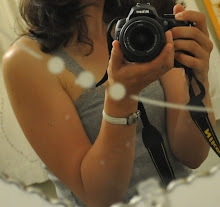
... or: I Stand Guilty of Nostalgia and I'm Fine with It
This is how it happened.
The other day I felt an urge to bake something, and that something soon crystalized to be no more no less than gingerbread. When I finally made it to Toronto from Ottawa (winter 2000 or 2001?) on the last leg of my winter holidays, Aaron's mother welcomed me with a fresh-baked, still-steaming loaf of gingerbread, which I simply loved. I even tried to make it myself later on in Halifax, which is why I thought of my little red box.
My little red box is rather faded; the colour has peeled off, especially on the corners of the lid. I got it in Cambridge (1996?) as a way of making my double room more homey. Candles, and my huge map on the wall, a few pictures, and a red box - just for the colour. How daring! said Knut when I walked into his room across the hall while he was in the shower... He had small homey things in his room too (where we often sat sipping tea or elderflower juice) -- including a ridiculous white-and-red porcelain rooster-alarmclock which cockadoodledooed early every morning, starting Knut off on his inevitable morning rituals before he'd cycle off to his lab at the university. Tall and upright, with trouser-clips at the ankles.
When I said my goodbyes to England (no, not 'adieu' -- wrote Harold on the farewell note, stuck on my door that July day that I left -- rather, 'au revoir'), I took the little red box with me, so it travelled first to Belgrade, then to Halifax, and then to Montreal. Over the last decade, it came to represent a sort of a "treasure-box," where I keep some of my trinkets, and, above all, recipes. (Tough luck with the gingerbread recipe -- it wasn't there). In the respect of my recipe-keeping habits, I can safely say that I am reproducing those of my parents. They never had a well-organized system for managing the ever-increasing pile of all sorts of papers, notes, memos, cut-outs, handwritten or typed, sometimes with dates and names of people who donated the recipe. All this was in a couple of small plastic bags, themselves placed in a bigger plastic bag, in the tiny storage room in our apartment. Teas, powders, flower and sweet things on the right; bottles, jars, and pickled things on the left; fruit and vegetables in baskets or bags on the floor. And Srdjan, maybe 2 years old, slipping inside when he thought mom wasn't watching, to plunge his hands into the sifted flower.
In reality, they are more than recipes; they are records of other lives and other times and other me's put together. There's Cathy in there, with the recipe for the famous chocolate balls her mother made one Christmas in Picton, Ontario; and Sanja, with the recipe for kiflice with cheese, of which she is the undisputed mistress; Srdjan, with a recipe for fish in wine, hastily scribbled as he dictated it to me over the phone; my father, and his winter pickles; my mother, with the recipe for tufahije (on which something spilled and browned the edges), podvarak, sarma, and prebranac; Suzy and her magic pie; baklava of the Greek fest guys in Halifax; sangria, which F and I made very successfully for one of my birthdays; my grandmother, with her walnut strudel (even signed and dated by her); Jakub, with his apple crumble; Pallavi, with beautifully calligraphed recipe for chana masala; Sho, with the miso-soup recipe full of smiley faces and music notes; Ivana, with the typed-out series of recipes for fancy breads; my cousin Martina's son Miloš, who copied a recipe for "wet cake" in the unsteady big handwriting of one who has just learned how to write; my mother, father and brother again, with a list of popular dishes typed by my brother, dictated by my father, and accompanied by a letter from 1999 written by my mother. By some fortunate mistake, there is also a slip of paper with the two stanzas of a song about the "kidnapping" of my grandmother by my grandfather, written in their honour and popularized by fellow-musicians in their county -- with a short shopping list on the other side, in the handwriting of my mother (bread, yogurt, beer, washing detergent).
On the bottom of the box, underneath these layers of time -- a few simple objects, each assuming symbolic dimensions in its singleness. A Toshiba thermometer, non-functioning (I've had about three mercury thermometers, and all three ended up broken when I shook them too strongly, terrified and fascinated by the quickly-forming balls of mercury running around the floor); 1x0.5 g analgin, 3x500 mg febricet, 1 caffetin (the whiteness of the pharmacist coat with her initials embroidered in red on the upper edge of the pocket); a yellowed 1998 church calendar; a slightly chipped light-green round handsoap I "stole" from Leckhampton on my four-day visit to Cambridge the spring following my fairy-tale year there
and
above
all
a small white pharmacy paper bag, worn out and bursting at the seams, filled to capacity with -- buttons; buttons of all kinds, sizes and styles. She must have known I wouldn't really need all those buttons; I guess in her mind they were a little something she could give me to take from home, a substitute for protection, a reminder of love, a part of my day away from her. Round, solid, and invincible, on the bottom of my little red box.






